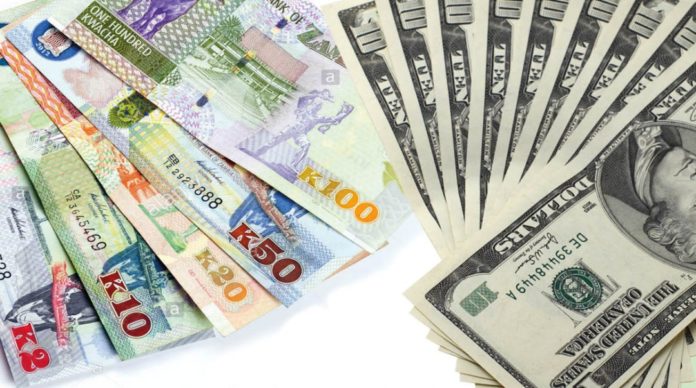An Economist says the appreciation of the Zambian kwacha against the United States (US) Dollar in the past week is due to the adjustment of the statutory reserve ratio from 9.0 percent to 11.5 percent by the Bank of Zambia.
The statutory reserve ratio is the proportion of the deposit liabilities that commercial banks are required to keep as a cash deposit with the Central Bank and an increase results in the reduction of currency in circulation.
Esther Banda said the Central Bank of Zambia has put up monetary policies that are meant to stabilize the Zambian Kwacha against other foreign currencies.
“The statutory reserve ratio increased from 9.5 percent to 11 percent which was meant to stabilize kwacha,” she said.
“We could not see the stabilisation there and then because the kwacha took time to respond.”
Ms Banda said the reason why the kwacha has kept appreciating is because of the positive effect of the adjustment of the statutory reserve ratio.
She added that the other contributing factor to the appreciation of the Kwacha is that Tax in the Mining sector is now being paid in Dollar.
However, she said this may also have a negative impact on the economy because of a drop of the money in circulation which can result in the cost of borrowing from Commercial Banks going higher.
Meanwhile, another Economist, Kelvin Chisanga said the biggest fundamental in play is that the Dollar is selling off sharply on the global market.
Mr. Chisanga added that copper prices have also gone up on the international market which has also given a positive movement in the growth of the Zambian Kwacha.
“On the global market, Copper prices have been up since last week Friday and this gave a positive movement in the growth of the Zambian Economy,” he said.
However, Mr. Chisanga said there are a number of factors that are also applying and there is a strong sentiment that has been coming from the creditors committee.
He said the Creditors Committee has gained confidence in the debt restructuring process due to the involvement of the International Monetary Fund (IMF).
“The International Monetary Fund had given them a lot of confidence knowing that they are going to harmonize the issues that had been standing for some time now,” Mr Chisenga said.

